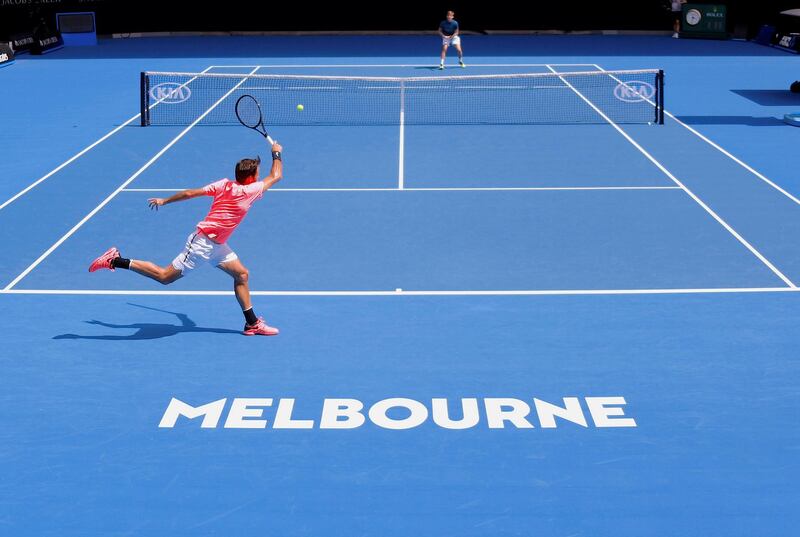Players could forfeit their prize money if they retire from first-round singles matches at the Australian Open, under new rules aimed at limiting the early injury withdrawals which have long caused controversy at grand slams.
Players will also be able to claim 50 per cent of their prize money if they pull out before their first match, an incentive designed to allow a replacement to play instead.
With tens of thousands of dollars at stake just for playing in the first round, early injury pull-outs have often caused suspicion at grand slams, particularly at last year's Wimbledon.
Eight players retired from the first round at the All-England Club, including the opponents of Roger Federer and Novak Djokovic during the second sets of their matches on Centre Court.
_____________________________________________________
Read more:
- Serena Williams: I absolutely want more grand slams
- Rafael Nadal: Ready for life with new coach Carlos Moya
- 'It feels really good to be back': Djokovic returns with a bang at Kooyong
_____________________________________________________
"A player should not go on court if he knows he should not finish," Federer said at the time, while Djokovic noted his opponent, Martin Klizan, even "had issues walking onto court" with a calf injury.
Now, under new rules by the International Tennis Federation (ITF), any grand slam player who withdraws after midday local time on the Thursday before the tournament draw will still receive 50 per cent of first round prize money.
Their replacement - a 'lucky loser' from the qualifying tournament - will get the other 50 per cent of the first-round prize money.
But players who do not "perform to the required professional standard" in the first round, including by retiring, also risk being fined their prize money, the new rules say.
Australian Bernard Tomic was fined a third of his £35,000 (Dh173,500) prize money for unsportsmanlike conduct at Wimbledon, after saying he felt "bored" and "couldn't care less" following a straight-sets defeat on day one. Any repeat this year and he would lose the lot.
Reminder 🚨
— #AusOpen (@AustralianOpen) January 11, 2018
The #AusOpen 2018 Main Draw, featuring @rogerfederer and @MariaSharapova, will be announced at 7:00 pm tonight AEDT.
📺
Facebook: https://t.co/PB25qrFR0d
TV: @7mate pic.twitter.com/X4i6Ar3H5Q
A similar controversy blew up at the Auckland Classic this week when four players pulled out before their opening matches, citing injury or illness.
Simply by turning up, they were eligible for prize money and avoided a fine. Chris Kermode, executive chairman of the men's tour, the Association of Tennis Professionals, promised a shake-up, although he accepted the players' reasons for withdrawing.
"Ranking points, player withdrawals and how we deal with that is something we've got to and are looking at," he told Fairfax Media in Auckland.
In a separate rule change designed to get matches started more quickly, warm-up times will be strictly enforced.
Players will be fined up to $20,000 (Dh73,500) for taking more than one minute after walking on court to get to the coin toss. They will also be restricted to five minutes warm-up time on court, and another one minute before the first point.
However, plans for a shot clock to enforce a 25-second time limit between points have been shelved, and will only be used in the qualifying tournament at Melbourne Park.
New rules reverting grand slams to 16 seeds from the current 32 are due to come into force in 2019.





